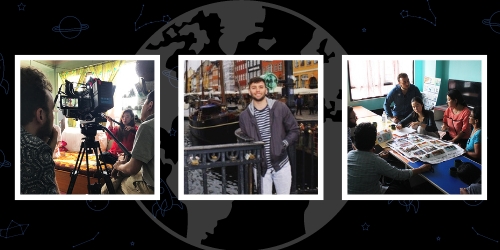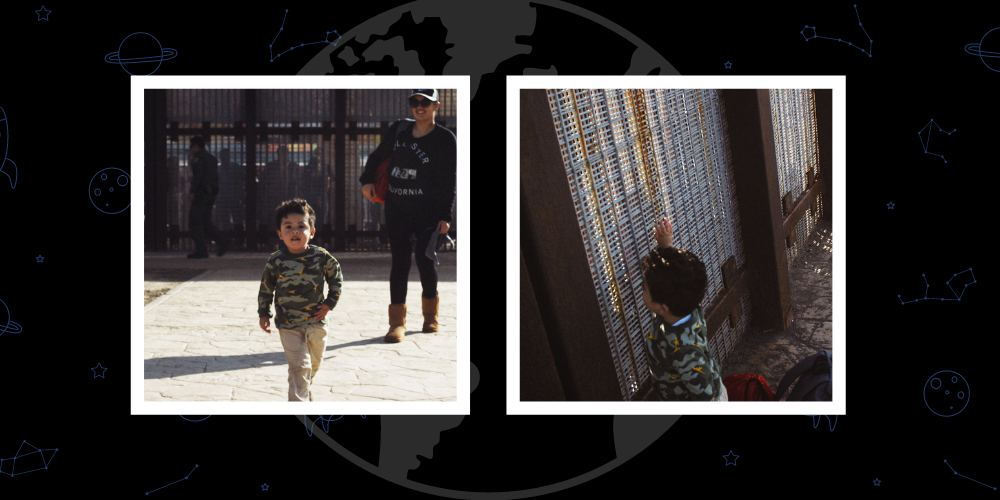Diesen Monat, Publikum kann screenen Threads of Hope Diesen Monat kann das Publikum „Without a Map“ von Regisseur Nacho Ros Bernal im Planet Classroom Network sehen. Dieser Film wurde von Planet Classroom für das Planet Classroom Network kuratiert.
Threads of Hope, directed by Bill Knowles, sheds light on the struggles of women workers in Nepal, facing sexism and unfair treatment. Through intimate storytelling, the film portrays their resilience as they turn to home-based work for survival—a poignant call to action for collective support and empowerment.
Die globale Suche nach Bildung freut sich zu begrüßen Bill Knowles.
Rechnung, what inspired you to tell a story about gender equality and oppression, and why did you choose to focus on the issues faced by women workers in Nepal?
I was inspired by the individuals we met in Nepal. Women like Maya (the woman who lost her husband) have inspired me my entire life, and her grit and determination to create a better life for her and her son were a major driving force in finding the story in this short film. She overcame an innumerable amount of obstacles to send her son to school and also to empower herself by earning and furthering her own education. I suppose I was inspired to tell a story about gender inequality and oppression because women like Maya and Nirmala reminded me of the women in my life. My mother came from Bulgaria, a very poor country with little opportunity for women, to America with hopes of creating a better life for herself and me.
Can you discuss the process of filming and storytelling in capturing the resilience of these women facing sexism and unfair treatment?
Much like the rest of the world, the majority of new business opportunities in Nepal are dominated by men. I was so inspired by these women carving out a life for themselves by using these acquired skills to venture into the business world and create a better life for themselves. It was tricky because of the language barrier, as well as some of the younger women we interviewed didn’t trust us entirely at first. Once we gained their trust, it was remarkable to peer into their world and learn of the sheer mountain of hardships they faced. I’m grateful for the opportunity to document that in a medium like film because I believe film has the potential to create everlasting change. I hope this film can help change the lives of women like Maya for the better.
Why did you decide to highlight the specific women you chose to include? Were there any other stories you thought to include but decided not to?
I feel very fortunate that we met the women we did. The first woman we met, Nirmala, who was also working towards becoming an elected official, introduced us to the other two women—Apsara and Maya—we interviewed during the film. It’s a difficult thing, trying to tell a story of such magnitude in only a month. We used that time to investigate, Film, and finalize the film so we could show it to those who were involved while we were still there in Nepal. As a crew, we had an idea of the story we wanted to tell, but that shifted and grew larger than we could have imagined as we talked and got to know these marvelous women. I’m certain if we had more time, we would’ve been able to discover even more subjects and stories that should be brought to light, and further the need for real discussion that can potentially create change.
What kind of impact do you hope this documentary will make on audiences?
I hope this film inspires people to use the time and resources available to them to make a positive impact in the world. Whether you are someone who can afford to aid others or someone who comes from a difficult situation, this film showcases that with perseverance and belief in yourself and in others, change can happen. I also think this film showcases how much further we have to go to create a world where opportunity and happiness can exist for all.
Danke, Wilhelm!
C. M. Rubin and William Dimitrov Knowles
Nicht verpassen Threads of Hope, Jetzt im Planet Classroom Network gestreamt. Dieser Film wird von Planet Classroom kuratiert.







Jüngste Kommentare